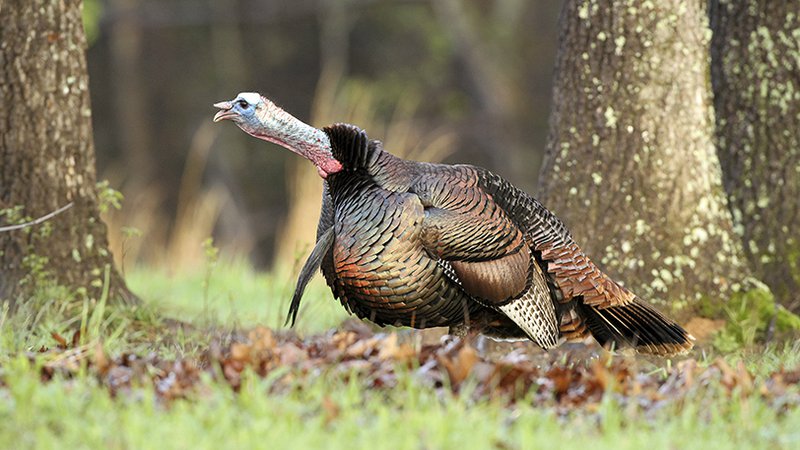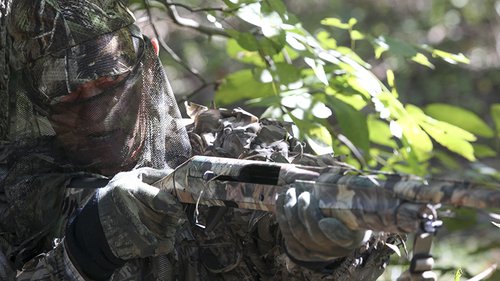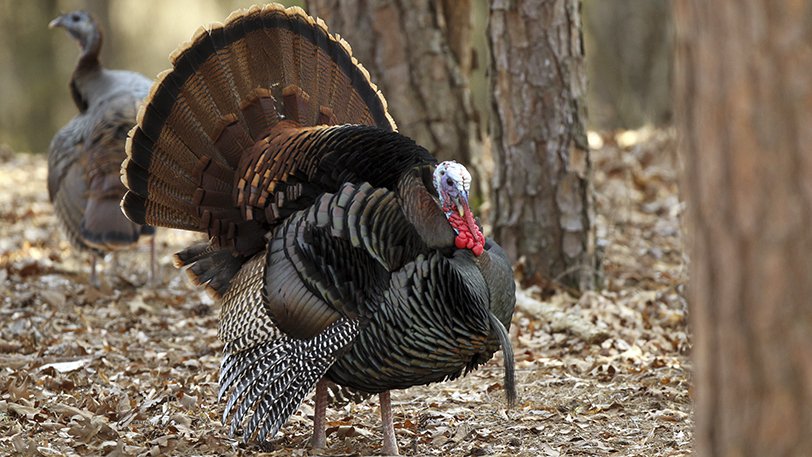Leave the calls behind when scouting for public land longbeards
ON 03-21-2018

March 21, 2018
Randy Zellers
Assistant Chief of Communications
FORT SMITH – Gobblers already are beginning to loosen up their vocal chords, and many hunters are having a hard time playing the waiting game until April 9. If you want to hear that tom gobble and head to your set on opening morning, you have to exercise a little patience. According to a veteran with more than 35 years under his turkey vest, stomping around in the woods now can be one of the worst things you can do if you’re going to see a bird when it matters.
Kevin Lynch, Regional Wildlife Supervisor for the Arkansas Game and Fish Commission in Fort Smith, has been hitting the turkey woods since 1982, and has hunted in many states, including Mississippi, Texas, Missouri and Kansas. While he still makes trips to Texas and Missouri, he spends more than a few days sitting in the woods of his home state, looking for another Arkansas bird to bring home.
“I hunted turkeys a long time before it became really popular, back when we didn’t have as many birds as we do now,” Lynch said. “With more turkeys came more turkey hunters, and that means more pressure on the birds.”
Lynch says hunting turkeys in the 1980s was much different. Relatively few people really knew how to call or what to do. Old timers would pass on their knowledge to a few people, but the circle of those was fairly small. With videos and television shows promoting turkey hunting and teaching people how to call, public hunting areas have become a cacophony of owl hoots, cackling crows and yelping hens. But the one sound you’re actually looking for is harder to come by.
“Back when I first started, you might run all over the countryside looking for a bird, but if you found him, he would gobble and come to your calls,” Lynch said. “Today, gobblers are much more careful about letting you know where they are.”
Lynch says a low-impact approach to scouting will help you and every other hunter score on opening morning.
“Those YouTube videos and shows like to put in plenty of calling and gobblers responding, and that’s what we all like to hear, but the more you call while you’re scouting, the more likely you are to shut that bird down before you ever get a chance to harvest it,” Lynch said.
According to Lynch’s personal hunting experience as well as telemetry and gobbling studies conducted in the last decade, hunter pressure has a profound effect on a gobbler’s likelihood to sound off to a disturbance or to a hen. Instead of hitting every ridgetop and blowing an owl hoot or crow call, trying to get a gobbler to sound off, Lynch prefers to stay silent and just listen. If he hears a bird, he may go in quietly to investigate a little more, but he leaves the calls behind until it’s time to take a bird home.
“I’ve seen it firsthand on public land where someone gets excited and starts hammering on birds to get them to call and spooks them,” Lynch said. “The worst thing you can do to educate those birds is call one up just to hear them or look at them, and on public ground you’re hurting everyone’s chances of getting a bird that way.”
The best times to sit and listen for a bird are warm, sunny days. Birds are more likely to gobble in the morning just after coming down from the roost, but will gobble sporadically during the day. Find a high spot to listen from, and if possible walk in to an area where the turkeys may not be heard from a road. The more isolated the bird is, the less likely it is that he’s heard someone calling or that someone else has heard him.
“Early in the season, gobbling activity can be highly variable,” Lynch said. “Some days they will gobble well, and the next day they won’t.”
Keep your mouth shut and your ears open and you just might learn what that turkey has to teach you.

Recent News
Subscribe to Our Weekly Newsletter E-mails
Don’t miss another issue. Sign up now to receive the AGFC Wildlife Weekly Newsletter in your mailbox every Wednesday afternoon (Waterfowl Reports are published weekly during waterfowl season and periodically outside the season). Fishing Reports arrive on Thursdays. Fill in the following fields and hit submit. Thanks, and welcome!


